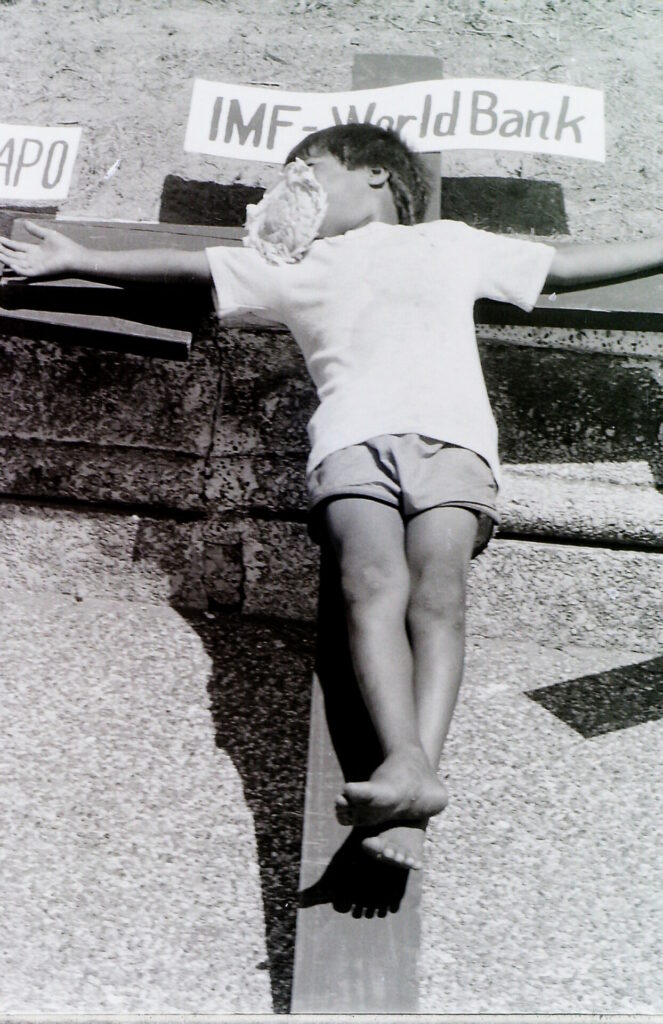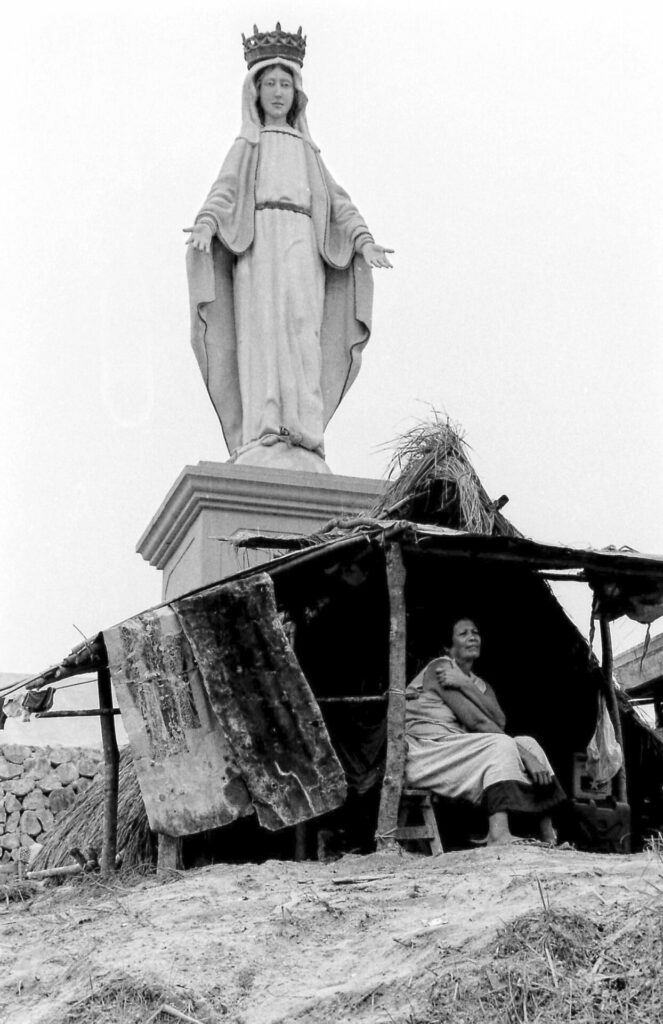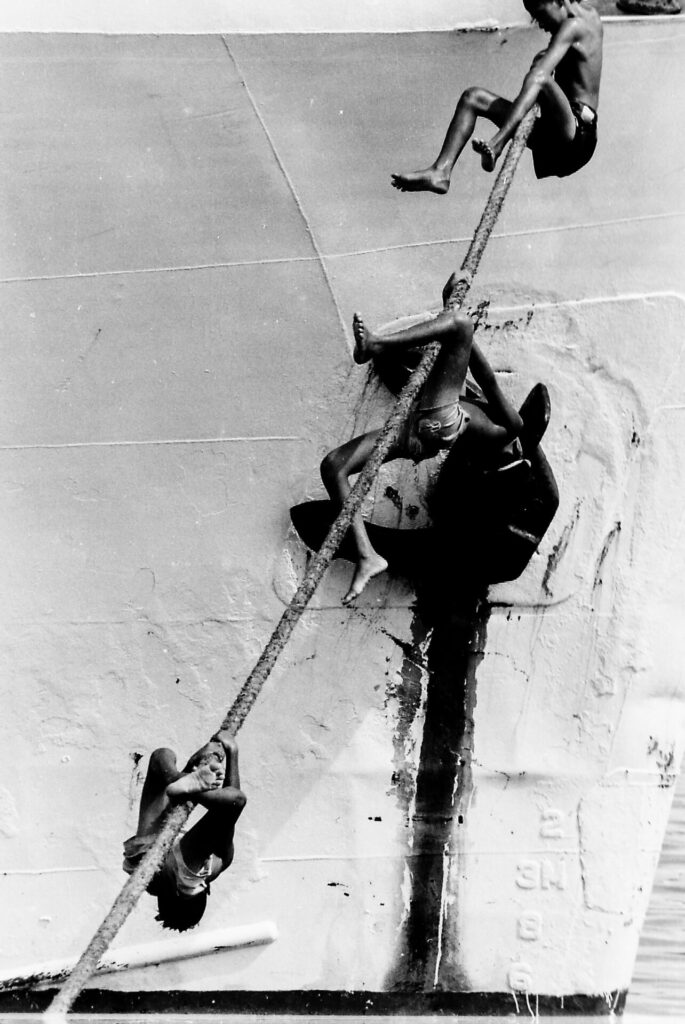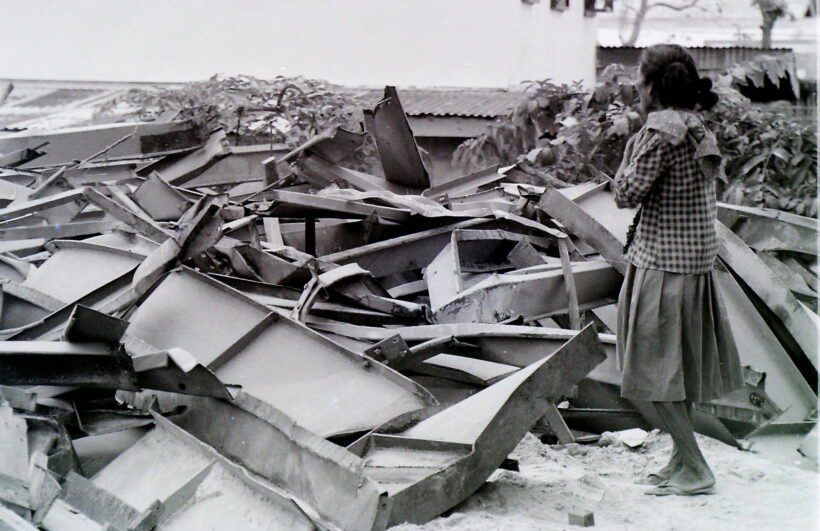Here is the sequel to Priestly solidarity with the poor. Pressenza journalist Perfecto Caparas interviewed Edward M. Gerlock about his life as a priest when martial law was declared in the Philippines on September 23, 1972.
Edward Gerlock sent Pressenza a bunch of black & white photos that he uses for discussion. Pressenza publishes those photos with his permission.



by Edward M. Gerlock
Mindanao is the only large island outside of the typhoon belt which occasioned the arrival of large multinational banana companies. Most of the large land the companies sought to occupy was already settled by poor farmers from the Visayas. On one occasion, 1,000 farmers joined 200 of their confreres to force the government to decide on the land.
Last note, during martial law, I was on trial and the words of the prosecuting attorney stuck in my memory: “Father, did you not realize that to oppose the banana companies is subversion!”
I’m joining poor Filipino farmers and they are defending foreign interests… and I’m accused of subversion….???
Picket
I was with the 1,000 farmers the day martial law was announced. They had constructed simple shelters and I can remember lying in the shelter and hearing the daily PAL (Philippine Air Lines) jet flight from Davao City on its way to Manila. I had been on that flight… the difference between my present situation and the people on the flight was two vastly different worlds.
On the day that the news of martial law arrived at the picket, the leaders met and decided to go home. I ventured an opinion that Marcos spoke about social inequities and the need for discipline. The leaders smiled at my naivete and went home.
Colonel “visits” convento
While I lived at the FFF, I used to go to the convento on Sunday evenings because Tagum was at the crossroads. Priests and brothers from many parishes would come for supper on their way to Davao and the Maryknoll center house. It was a good occasion to socialize and since it was late, I decided to stay in the convento overnight. I was rudely awakened early Monday morning with loud pounding on the door below. Looking out the window, I could see a contingent of armed constabulary soldiers (?) and assumed they had not come to buy candles. The parish priest was in the church celebrating the eucharist so I had time to get ready before he finished and opened the door.
I was to be brought to Manila to Camp Crame and was accompanied by a Colonel from Tagum to Manila. The Colonel was very kind, even sympathetic. When we arrived at Crame, it had been exactly 24 hours since I had eaten.
While being processed to enter the prison area, a great fear came over me. I had seen prison conditions and the gangs in Davao and almost began to shake with fear. Suddenly, just standing there, a feeling of peace came over me. I would be fine. I cannot explain it but think it was a “mystical moment”; no vision or anything, just a feeling of great peace. (to be continued)
Prison barrio
Camp Crame was quite an experience. We were more than 200 prisoners and divided between political detainees and seeming “lawbreakers”.
A few days before my arrival, a couple of guys escaped during their “fresh air” time outside; so when I got there, there was no more time outside. On top of that, there was no water during the day (low pressure). Thank God there was a detained mayor from Nueva Ecija who organized the place. If I wanted to shower, I was allotted 15 minutes at 2 am.
It was a typical Filipino barrio. When I arrived, I hadn’t eaten for nearly 24 hours and the first question was, “Have you eaten?”. And prisoners produced pan de sal and even a beer from hidden places.
Visitors
On my first day there, I was visited by a consul from the American Embassy. His basic message was if I wanted to return to the States, it could be arranged within 24 hours; if I insisted on staying… I was on my own.
A few days later, the Papal Nuncio came and his message was if I needed toothpaste or razor blades, he could help.
The best visitor was “Nena” Diokno, wife of the senator (Jose “Ka Pepe” Diokno) who promised to get a good lawyer, if I decided to face trial.
Jampacked hearing
The best day of my whole life was the day we walked into the Immigration courtroom and when the judge, Edmundo Reyes, saw my lawyer, former Senator Lorenzo Tañada…. his jaw noticeably dropped.
I think the psywar experts in government saw this trial as the occasion to teach church people what their proper role should be during martial law so the courtroom was jampacked with religious people from various congregations.
I heard Commissioner Reyes remark, “This place smells like Quiapo!”
Jesuit Bishop Claver and superior Mayo spoke on my behalf as well as my own Bishop Regan and superior Noonan.
Fiscal Vidal Tambo
I must admit that even I was surprised to hear that my motivation had been so noble but the “pièce de résistance” came when a man from the Department of Justice (who frequented Davao documenting land cases) – Fiscal Vidal Tambo testified. Tañada leaned over and whispered in my ear, “I didn’t think there were still people in government like that!” Since he was testifying against his employer, I heard he lost his job.
Years later, when I read in the local paper that he had died, I took a bus to his hometown to attend the wake and console his widow. One does not meet many heroes in life like that.
Innocent
I heard that the Carmelite Printing Press was considering printing the trial sessions because it best interpreted what the role of the Christian is during a time of repression.
The trial lasted for more than a year and I was transferred from Camp Crame to Engineers Island and the immigration prison which was a lot less conducive to relationships. Co-prisoners were overstaying Chinese and US AWOL airmen from Clark Air Base and finally house arrest.
The final decision must be one of the greatest non-sequiturs in legal history. I was found innocent of the charges and therefore not allowed to return to Mindanao, restricted to the Greater Manila Area and required to report to the military at Camp Aguinaldo once a month. (to be continued)
About Edward M. Gerlock
I was born on February 2, 1936, in Binghamton, New York. I have an older brother who was a priest in the diocese and who recently died and a much younger sister who lives in New York. My parents were both factory workers and we went through some difficult times during my childhood. I myself began working at the age of 12 and entered Maryknoll, a missionary society the day after graduating from high school.
Ordained in June 1962, I was assigned to the Philippines. It was the time of the Vatican Council and renewal in the church and I was delighted when the bishop asked me to be a chaplain for a rapidly growing organization of farmers, the Federation of Free Farmers. The organization grew rapidly in Mindanao.
On the first day of martial law, I was arrested and restricted to the poblacion in Tagum, Davao Del Norte.
A year later, I was rearrested and brought to the detention center in Camp Crame in Manila. A trial followed at Immigration which lasted for 13 months, during which I was transferred from Crame to the immigration prison at Engineers Island. At the end of the trial, I was released but restricted to the Greater Manila Area. I found a place to work and lived in Tatalon, Quezon City, an urban poor area.










